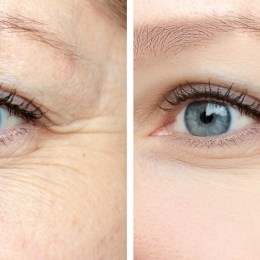There has been a lot of industry buzz of late around factors contributing to good skin health, other than just skin regimes. Early last year, gut health was making headlines, late last year was epigenetics and using skincare to influence gene expression, and now the focus has shifted again – going back to basics with good nutrition.
Commentary is mounting among industry experts pledging that no amount of skincare will work effectively if the body’s nutritional requirements are out of balance. Of course, most practitioners are already aware of this, but there is growing industry demand for complementary referrals among practitioners to holistically treat both inner and outer health to achieve best results.
Nutritional Medicine Practitioner, Dermal Clinician, and founder of Nutritional Skin Care Academy Chiza Westcarr, specialises in the skin’s relationship with internal health, and agrees that skincare on its own just isn’t enough to heal and treat skin, particularly for conditions such as acne.
“There is now indisputable evidence of the link that exists between inflammatory skin conditions and gut health. In order to achieve optimal health outcomes, including healthy, glowing skin; diet must be a consideration,” says Chiza.
“The skin is the body’s largest organ and it is not an island. It is impacted by so many factors such as environmental exposure, lifestyle, medication, hormonal flux, and diet. External-only skincare is never enough. A holistic, inside-out approach is always the best approach. A diet that drives inflammation is one that is highly processed and once this is addressed, it is quite incredible how much quicker the skin responds to topical skincare.”
Many wellness meccas are already following suit by introducing healthy eating options within their spas, such as Sydney’s Sol Spa Vaucluse and their signature spa bento, or Melbourne’s Willow Urban Retreat and Peninsula Hot Springs with paddock-to-plate spa cafes.
Chiza says there are things that practitioners can do when it comes to meeting in the middle, and knowing when to pass clients on to other specialists.
“Some simple diet-related questions should be added to the consultation form so that, along with enquiring about what medication the client is on and what treatments he or she has had recently, etc; finding out what is typically consumed for breakfast, lunch and dinner along with snacks and beverages will provide greater insight into possible acne triggers. Therapists come across clients who have conditions outside of their scope of practice all the time and most know to refer them on to the relevant specialist. Naturopaths, Nutritionists, Integrative Practitioners, GPs for Endocrinologist referral are just some examples.”
Dr Mark Bartlett, Vice President of Global Research and Development for Pharmanex (Nu Skin) has a specialised interest in the role of nutrition in human health, and also says that skincare, regardless of amount or quality, will not be effective if diet is poor.
“Nutrition is really the foundation of good beauty and health. You can use products until the cows come home, but if you’re not taking care of your stress levels and your diet, then it’s going to impact your hair, skin and nails.”
He does, however, say that practitioners may not be required to cross-refer, but focus instead on reminding clients of good health and generating awareness.
“When you’re referring someone to a nutritionist, it implies that there is a real nutritional issue, and it doesn’t have to be that deep, really I think in general I’d be saying for example, if you’re smoking, you should give up smoking – because that’s going to age skin very fast. You don’t necessarily have to refer them to a nutritionist because most people intuitively know if they’re eating well or if they’re not. That’s what it really boils down to – making people aware.”
For more news and updates, subscribe to our weekly newsletter.




